
Melatonin is the sleep-inducing hormone millions of people are taking to get a good night’s rest without a fight. When you take melatonin on an empty stomach, you can increase its effectiveness.
Melatonin is more effective when taken after your body has already digested its last meal. This allows for faster absorption and better regulation of the body’s sleep-wake cycle.
Order our melatonin gummies and read about the best way to take melatonin for a good night’s sleep.
Can I take melatonin on an empty stomach?
Melatonin is best taken on an empty stomach. If your stomach is empty, melatonin is absorbed faster and more efficiently. It allows its effects to reach peak levels in the blood faster.
When you take a melatonin gummy, the compound is absorbed through the digestive system before it enters the bloodstream. Food in the stomach triggers the release of digestive enzymes and slows down gastric emptying, the process by which the stomach contents move to the small intestine. This can delay the absorption of melatonin.
Food, especially those high in fat or protein, interacts with the absorption and breakdown processes, reducing melatonin’s effectiveness. If you want to optimize melatonin's effects and get the most out of this natural sleep aid, take it on an empty stomach or after you've already digested your last meal of the day.
Can I eat after taking melatonin?
You can eat after taking melatonin, but it's best to wait a bit before diving into a snack or meal. Give your body some time to absorb the melatonin without food interfering with its absorption.
Wait at least 30 minutes to an hour after you take your supplement before eating anything. This way, you're not disrupting absorption, and the melatonin can start working its magic faster. If you're feeling a bit hungry, try a small, light snack that won't overwhelm your digestive system.
When should I take melatonin?
Take your melatonin supplement about 1–2 hours before bedtime. This gives your body time to absorb it and sync up with your natural circadian rhythms, also known as the sleep-wake cycle.
Consistency is key. Try to take your melatonin at the same time each night, and avoid eating a big meal right before. This helps your body get into a regular sleep pattern.
Your individual sleep needs and habits matter, too. If you’re a night owl who struggles to fall asleep early, it may be helpful to take melatonin a bit earlier in the evening to signal your body it’s time to wind down. If you’re more of an early bird, take melatonin closer to your desired bedtime.
Melatonin is a supplement, not a long-term solution for chronic sleep issues. If you find yourself relying on it regularly or having persistent trouble sleeping, it's best to talk to your healthcare provider to address any underlying concerns.
We’re not saying our melatonin sleep gummies will cure your sleep disturbances or regulate your sleep-wake cycles, but they are too delicious to pass up. Our wild strawberry-flavored edibles combine 3 mg of melatonin with 25 mg of cannabidiol (CBD) and a touch of cannabinol (CBN), two cannabinoids that may promote relaxation and support a restful night's sleep.
"I’m very happy with the sleep gummies, I have a hard time falling asleep and these gummies make me feel relaxed and sleepy so I can get a good nights sleep, and they taste good too."
How long does it take melatonin to work?
According to the Cleveland Clinic, melatonin takes around 30 minutes to work. This depends on the method of consumption.
- If you’re taking melatonin in liquid form, the onset of effects could be as quick as 15 minutes. Liquid melatonin does not need to go through the digestive system, so you can feel the effects pretty quickly.
- When you take melatonin in edible form, the compound has to pass through the digestive system before the effects kick in. This can take a while—anywhere from 30 minutes to an hour.
Our melatonin gummies are fast-acting, with the onset of effects beginning about 15 minutes after consumption. Try our Sleep Plus edibles in blackberry and lavender flavors with 3 mg of melatonin and a balanced ratio of THC and CBD.
Don’t worry, the THC in these gummies won’t cause heavy sedation, and you won’t be waking up feeling groggy. Our carefully crafted formula ensures that the THC dosage in our edibles is low, allowing you to enjoy the therapeutic benefits of cannabis without side effects.
That is the beauty of microdosing cannabis.
How much melatonin can adults take?
With melatonin, less is often more. Extra doses of melatonin can cause side effects and negatively impact your daily functioning. If you’re taking melatonin as a sleep aid, higher amounts of melatonin may also disrupt your natural sleep-wake cycle, making it harder to fall asleep and stay asleep on your own.
For adults, a good starting dose of melatonin is between 0.5 and 5 milligrams. The appropriate dose depends on several factors, such as:
- Your age
- The severity of your sleep issues
- Your health condition
Start with the lowest effective dose and adjust as needed. If you're unsure about adding melatonin to your sleep regimen, chat with your doc for personalized advice.
What happens if I take melatonin and don’t go to bed?
If you take a melatonin supplement and don't go to bed, you may experience some unwanted side effects. As a sleep aid, melatonin works by signaling to your body that it's time to wind down and prepare for sleep, in sync with your natural circadian rhythms. By staying awake and fighting against this signal, you may feel drowsy, groggy, or fatigued.
Always take melatonin as directed, usually 60 to 120 minutes before bedtime. If you consistently have trouble falling asleep or staying asleep after taking melatonin, consult your healthcare provider to address any underlying sleep disorders or medical conditions that may be interfering with your sleep patterns.
If you’re struggling with sleep, microdosing cannabis can offer a gentle solution. We carefully titrate THC, CBD, and other sleep-promoting compounds to help you find relief without overwhelming sedation, allowing for a more balanced and restful night's sleep.
Here’s our guide on using cannabis edibles as a potential treatment for insomnia and other sleep disorders.
Product QUIZ
Need help deciding what product is best for you? Take our quiz, just three questions until your perfect match!
Does melatonin have side effects?
Melatonin is considered safe when taken in appropriate dosages. When you take too much melatonin, you may be in for some unpleasant side effects. Some common side effects of higher melatonin levels include:
- Daytime drowsiness and fatigue
- Headaches and migraines
- Dizziness and disorientation
- Nausea
- Digestive issues
- Irritability and mood changes
- Anxiety
- Grogginess ("melatonin hangover")
- Vivid dreams or nightmares
- Sleepwalking or other sleep disturbances
- Hormonal changes, especially in women
- Tremors and muscle weakness
- Confusion and memory problems
- Dry mouth and dehydration
- Allergic reactions (rare)
According to the Sleep Foundation, your body naturally produces approximately 0.1 mg of melatonin a night. When you take more than the natural amount of melatonin you need to reset your sleep-wake cycle, it can be counterproductive.
Melatonin can interact with certain medications and exacerbate some underlying health conditions, leading to more side effects. Be cautious about taking melatonin, or stick to ultra-low doses if:
- You’re on blood pressure medications
- You’re on blood thinners
- You suffer from seizure disorders
- You have liver conditions or a history of liver disease
- You are pregnant or nursing
- You have diabetes or are taking diabetes medications
- You’re taking immunosuppressants
- You’ve recently had an organ transplant
- You’re scheduled for surgery
- You’re allergic to melatonin or other supplement ingredients
- You have asthma or other respiratory conditions
If you fall into any of these categories, have a discussion with your doctor about the potential risks and benefits of taking melatonin.
Is 20 mg of melatonin too much?
20 mg of melatonin is significantly higher than the recommended dose for most people. Such a large amount can lead to a range of unwanted side effects that can leave you feeling less than your best the following day.
The majority of people find that a dose between 0.5 mg and 5 mg is sufficient to help them fall asleep and improve their quality of sleep. Some sources suggest that adults should not exceed a daily dose of 10 milligrams.
While not fatal, very high melatonin levels may have long-term effects on your health.
The key is low doses; stick to microdosing cannabis and our melatonin gummies for sleep. You may be surprised to learn that in addition to improving sleep, melatonin has other potentially therapeutic benefits.
What are the benefits of melatonin?
The potential effects of melatonin supplementation span beyond sleep effects. Here are some ways melatonin can help you feel your best, day and night:
Melatonin can improve sleep and alleviate insomnia
Melatonin is naturally produced by the pineal gland in response to darkness to regulate the body's circadian rhythms. These rhythms determine our sleep-wake cycles, signaling to the body when it's time to sleep and when to wake up.
If you're struggling with insomnia, supplemental melatonin may be the key to unlocking better sleep. Melatonin regulates your sleep-wake cycle, helping you fall asleep faster and stay asleep longer. A 2018 study found that melatonin supplements can help treat circadian rhythm sleep disorders and insomnia in older adults and children with neurodevelopmental disorders.
Melatonin alleviates jet lag
Melatonin can help you bounce back from jet lag quickly. Its primary mechanism involves resetting your body's internal clock to align with the new time zone. This reduces the symptoms associated with jet lag such as daytime fatigue, sleep disturbances, and difficulty concentrating.
British researchers found that “melatonin is remarkably effective in preventing or reducing jet-lag, and occasional short-term use appears to be safe.” They recommend melatonin for adult travelers who fly across five or more time zones and for those with jet lag delayed sleep-wake phase disorder (DSWPD).
Melatonin has antioxidant properties
Did you know that melatonin is a powerful antioxidant? It aids in the protection of your cells from damage caused by harmful free radicals, which can cause many health issues and chronic disorders.
A 2009 study revealed that melatonin can counteract the damaging effects of oxidative and nitrooxidative stress—key factors in aging and metabolic diseases.
Melatonin can soothe stress and anxiety
Melatonin has anxiolytic properties. The relationship between sleep and anxiety is tight: poor sleep quality often exacerbates anxiety symptoms—and vice versa. The role of melatonin in improving sleep may indirectly contribute to reduced anxiety levels.
Repova, et. al. proposed that melatonin’s beneficial effects on anxiety may be attributed to its ability to reduce sympathetic nervous system activity, interact with stress-related hormonal systems, modulate neuronal signaling, and act as a powerful antioxidant and free radical scavenger.
Melatonin supports eye health
Remember those nasty free radicals? Melatonin can protect your eyes from damage caused by oxidative stress. It helps regulate intraocular pressure and improves blood flow to the eyes.
Chinese researchers explored the protective and therapeutic potentials of melatonin for glaucoma, myopia, and retinal diseases. Another study found that melatonin treatment reduced inflammation, blood vessel expansion, and cataract formation in patients with uveitis, a common inflammatory eye disease.
Melatonin improves brain health
Want to keep your brain sharp as you age? Melatonin may be able to help. This natural hormone has neuroprotective properties. South Korean researchers found that melatonin may offer its antioxidant properties to help shield your brain from Alzheimer’s disease, promote neuroplasticity, and fight depression.
An article published in Nature highlighted melatonin’s neuroprotective effects on mitochondria through its ability to scavenge free radicals. This can potentially help treat psychiatric disorders.
Melatonin alleviates migraines
If you suffer from migraines, you know how debilitating they can be. Luckily, melatonin may offer some relief. Research has shown that taking melatonin can reduce the frequency and intensity of migraines, making them more manageable.
A randomized controlled trial found that melatonin was more effective than traditional medication in improving headache frequency, and had fewer adverse effects.
Melatonin FAQ
Why put melatonin under the tongue?
When you put melatonin under your tongue, you ensure an efficient and faster delivery of this sleep-promoting dietary supplement. Sublingual administration of melatonin bypasses the digestive system, facilitating rapid absorption through the mucous membranes.
Sublingual melatonin administration is a quick and reliable solution for sleep disturbances. It leverages melatonin production and secretion mechanisms to align with your natural sleep cycles effectively.
What is the safest way to take melatonin?
The safest way to take melatonin is with a low-dose edible, starting between 1–3 mg. This method of consumption mitigates any potential side effects and keeps you refreshed and alert the next day.
Several factors are involved here: age, existing health conditions, and concurrent medications can help you determine the appropriate method and dosage. If you want a quicker uptake, opt for sublingual administration. If you want to schedule your bedtime, choose our melatonin gummies. This personalized approach ensures the long-term safety of melatonin intake, especially among people with insomnia and other sleep disorders.
Is it OK to take melatonin every night?
You can take melatonin regularly if you integrate it safely into your sleep routine. To prevent tolerance buildup and dependency, take periodic breaks or cycling off melatonin supplementation. This aims to maintain its efficacy over time and minimize the risk of disrupting natural melatonin production.
Is it OK to cut melatonin in half?
When you cut melatonin tablets or pills in half, you may compromise the accuracy of the dosage and cause an uneven distribution of the sleep hormone. Use melatonin supplements available in lower dosage options, such as 1 mg or 3 mg and always make sure you precisely dose melatonin. This guarantees consistency and safety.
Is melatonin easy on the stomach?
Melatonin is generally well-tolerated and considered easy on the stomach for most people, which is why many rely on it to promote sleep without gastrointestinal discomfort. Unlike some medications or supplements that may cause abdominal cramps, melatonin typically does not cause an upset stomach when taken as directed. Consult your health care provider if you experience any digestive issues after you take melatonin.
How long does 10 mg of melatonin last?
The duration of melatonin's effects varies depending on individual factors such as metabolism, dosage, and sensitivity to the hormone. Melatonin's effects typically last for about 4–8 hours. During this time frame, you can get a solid eight hours of sleep.
Does light exposure affect melatonin production?
Light exposure plays a crucial role in regulating the body's production of melatonin and maintaining a healthy circadian rhythm. Exposure to bright light in the evening, especially blue light from electronic devices, can suppress the natural production of melatonin, which is essential for signaling to the body that it's time to sleep. This disruption in melatonin secretion can lead to circadian rhythm disorders, making it difficult to fall asleep at night and wake up in the morning. To support healthy melatonin levels and maintain a normal sleep pattern, it's important to limit exposure to bright light in the hours leading up to bedtime and create a sleep-conducive environment with dim lighting.
How effective are melatonin supplements in treating insomnia?
Several factors can impact the efficacy of melatonin supplements in treating insomnia, including the timing of melatonin administration, the concentration of melatonin in the supplement, and individual variations in melatonin metabolism. Taking melatonin at the appropriate time, typically 1-2 hours before bedtime, can help align the body's circadian timing with the desired sleep schedule.
The effectiveness of melatonin may also depend on the specific product used, as the content of melatonin can vary between supplements. Some people may metabolize melatonin differently due to genetic factors or other physiological processes, which can influence the effectiveness of melatonin for sleep. Working with a healthcare provider specializing in sleep medicine can help optimize the use of melatonin for treating insomnia.
Can melatonin help me lose weight?
Some studies suggest that melatonin may play a role in regulating body weight and metabolism. One study found that naturally low melatonin levels are associated with obesity, and that supplementation can reduce body weight, improve metabolic profiles, and modulate oxidative processes related to aging and immune responses.
Another study focused on the mechanisms of melatonin in obesity, highlighting its effects on circadian rhythm, immune system, cancers, and energy metabolism. This study suggests that melatonin may play a significant role in how our bodies manage weight loss and metabolic processes.
How does taking melatonin at night affect sleep?
Melatonin plays a crucial role in regulating sleep-wake cycles. When you take melatonin supplements at night, this can help synchronize the body's internal clock, making it easier to fall asleep and promoting overall sleep quality. By enhancing the natural production of melatonin, you may experience improved sleep duration and quality, particularly if you struggle with insomnia or circadian rhythm disorders. Melatonin's antioxidant properties may contribute to its sleep-promoting effects by reducing oxidative stress in the brain, further supporting restful sleep.
What are the natural sources of melatonin?
While melatonin is naturally produced by our pineal gland, there are other ways you can obtain it.
Here are some natural sources of melatonin:
- Tart cherries are one of the richest natural sources of melatonin, making them a tasty option for promoting better sleep.
- Fruits such as bananas, grapes, and oranges also contain small amounts of melatonin.
- Nuts and seeds such as almonds, walnuts, and sunflower seeds are packed with melatonin.
- Grains such as rice, barley, and oats contain traces of melatonin, but are still valuable additions to your diet to boost melatonin.
- While not as potent as other sources, tomatoes, corn, and asparagus also contain melatonin, adding variety to your diet while supporting sleep health.
Resources
Clinic, C. (2024, March 19). Melatonin: How Much Should You Take? Cleveland Clinic. https://health.clevelandclinic.org/melatonin-how-much-should-i-take-for-a-good-nights-rest/
Graham, B., & Graham, B. (2022, October 20). How Much Melatonin Do We Really Take? Sleep Foundation. https://www.sleepfoundation.org/sleep-news/how-much-melatonin-do-adults-really-take
Zisapel, N. (2018). New perspectives on the role of melatonin in human sleep, circadian rhythms and their regulation. British Journal of Pharmacology, 175(16), 3190-3199. https://doi.org/10.1111/bph.14116
Herxheimer A, Petrie KJ. Melatonin for the prevention and treatment of jet lag. Cochrane Database Syst Rev. 2002;(2):CD001520. doi: 10.1002/14651858.CD001520. PMID: 12076414.
Korkmaz, A., Reiter, R. J., Topal, T., Manchester, L. C., Oter, S., & Tan, X. (2009). Melatonin: An Established Antioxidant Worthy of Use in Clinical Trials. Molecular Medicine, 15(1-2), 43-50. https://doi.org/10.2119/molmed.2008.00117
Repova, K., Baka, T., Krajcirovicova, K., Stanko, P., Aziriova, S., Reiter, R. J., & Simko, F. (2022). Melatonin as a Potential Approach to Anxiety Treatment. International Journal of Molecular Sciences, 23(24). https://doi.org/10.3390/ijms232416187
Yu, H., Wang, Q., Wu, W., Zeng, W., & Feng, Y. (2021). Therapeutic Effects of Melatonin on Ocular Diseases: Knowledge Map and Perspective. Frontiers in Pharmacology, 12. https://doi.org/10.3389/fphar.2021.721869
Melatonin May Save Eyesight In Inflammatory Disease, Study Suggests. (2008, November 8). ScienceDaily. https://www.sciencedaily.com/releases/2008/11/081123074105.htm
Lee, J. G., Woo, Y. S., Park, S. W., Seog, H., Seo, M. K., & Bahk, M. (2019). The Neuroprotective Effects of Melatonin: Possible Role in the Pathophysiology of Neuropsychiatric Disease. Brain Sciences, 9(10). https://doi.org/10.3390/brainsci9100285
Melhuish Beaupre, L. M., Brown, G. M., Gonçalves, V. F., & Kennedy, J. L. (2021). Melatonin’s neuroprotective role in mitochondria and its potential as a biomarker in aging, cognition and psychiatric disorders. Translational Psychiatry, 11(1), 1-10. https://doi.org/10.1038/s41398-021-01464-x
Lyon, C., Langner, S., & Stevermer, J. J. (2017). PURLs: Consider melatonin for migraine prevention. The Journal of Family Practice, 66(5), 320-322. https://www.ncbi.nlm.nih.gov/pmc/articles/PMC5432214/
nama CBD FDA & legal disclaimer
Our products are not intended to diagnose, treat, cure, or prevent any disease. They are not a replacement for prescription medications and have not been evaluated by the U.S. Food and Drug Administration (FDA).
The information provided on this website does not and is not intended to, constitute legal advice or any statement of the status of any laws. Any information, content, and materials available on this site are for general informational purposes only and are not intended to be relied upon for any purpose.
Readers of this website should contact their attorney to obtain advice with respect to any particular legal matter, including decisions on what products are, or are not, legal to sell, possess, or consume. No reader, user, or browser of this site should act or refrain from acting on the basis of the information on this site without first seeking legal advice from their own counsel in the relevant jurisdiction.
More articles
About
Learn
Join us on this journey

© Copyright 2025 nama Products LLC. All Rights Reserved.
†These statements have not been evaluated by the Food and Drug Administration. These products are not intended to diagnose, treat, cure or prevent any disease. All information presented here is not meant as a substitute for or alternative to information from health care practitioners. Please consult your health care professional about potential interactions or other possible complications before using any product.
††The information provided on this website does not, and is not intended to, constitute legal advice or any statements of the status of any laws. Any information, content, and materials available on this site are for general entertainment purposes only, and are not intended to be relied upon for any purpose.
123 John Doe Street
Your Town, YT 12345
Store Hours
Sun: Closed
Mon-Fri: 9:00 - 17:00
Sat: 10:00 - 13:00
What to expect at pickup
Closed
Closing at 5pm
Closing at 5pm
Closing at 5pm
Closing at 5pm
Closing at 5pm
Closing at 1pm

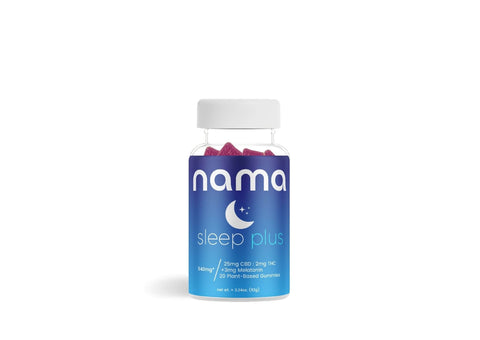
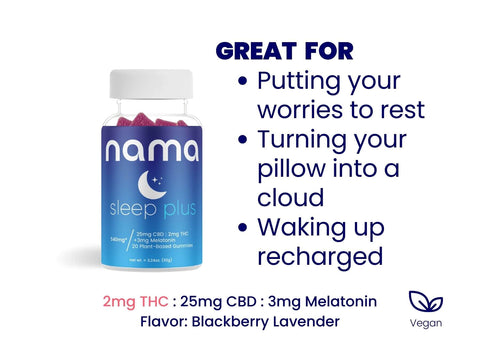
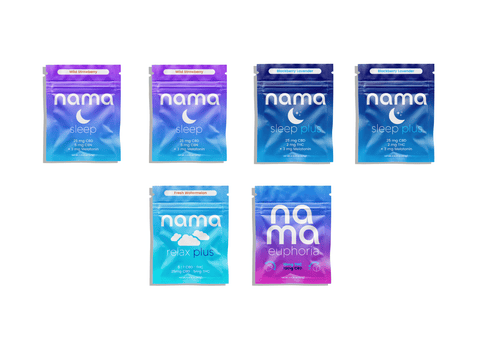
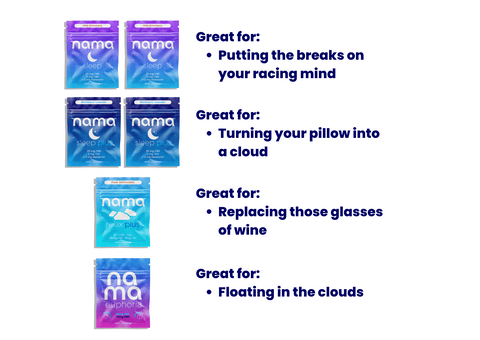
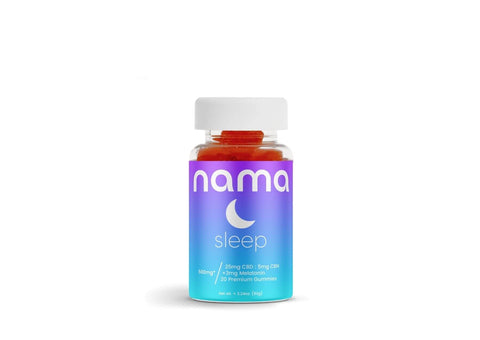



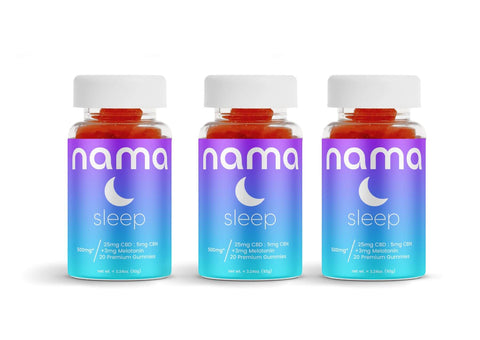









![Buzz Packs™ [THC and CBD Powder Drink Mix]](http://www.namacbd.com/cdn/shop/files/nama_buzz_packs_thc_drink_pack_white_background.png?v=1741884660&width=480)
![Buzz Packs™ [THC and CBD Powder Drink Mix]](http://www.namacbd.com/cdn/shop/files/Buzz_Packs_Label.png?v=1741884660&width=480)




![Buzz Drops™ [THC Drink Drops]](http://www.namacbd.com/cdn/shop/files/nama_thc_buzz_drops.png?v=1711412866&width=480)
![Buzz Drops™ [THC Drink Drops]](http://www.namacbd.com/cdn/shop/files/buzz-drop-wine-comparison.png?v=1736882023&width=480)






Comments (0)
There are no comments for this article. Be the first one to leave a message!